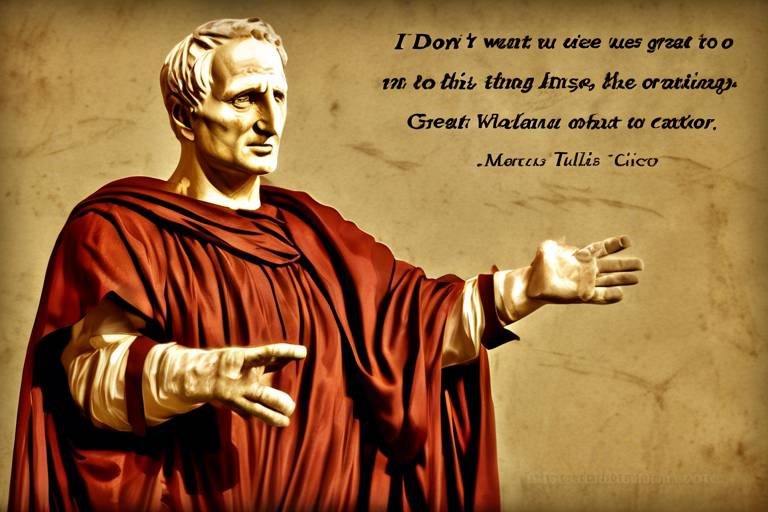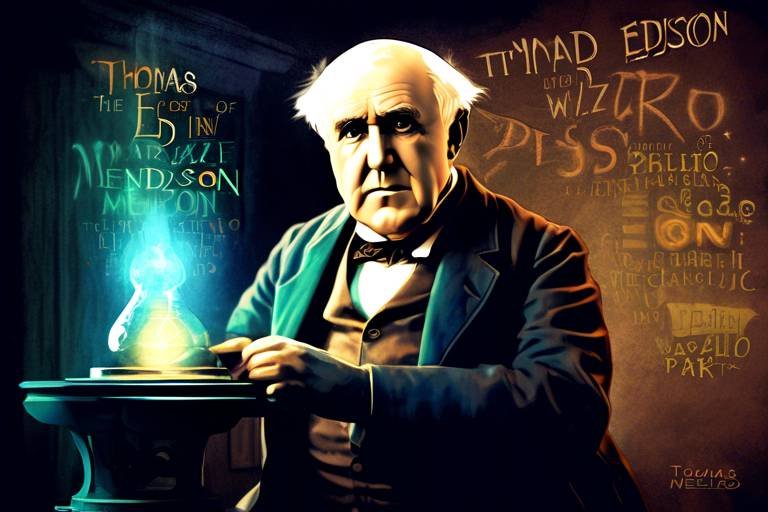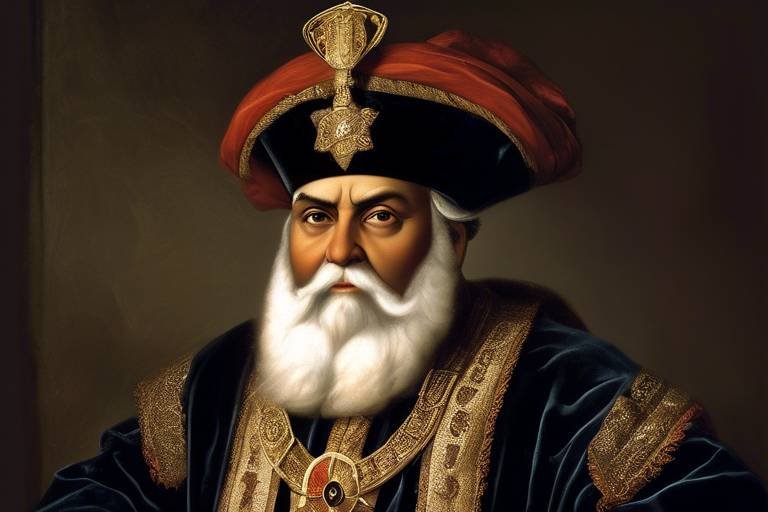Woodrow Wilson: The Visionary of Peace
Woodrow Wilson, the 28th President of the United States, is renowned as a visionary of peace whose legacy continues to inspire generations. His unwavering commitment to international diplomacy and peace efforts, especially during and after World War I, solidified his place in history as a transformative leader.
Born in 1856 in Virginia, Wilson's early life and education played a crucial role in shaping his worldview. His academic achievements, including a Ph.D. in political science, equipped him with the knowledge and expertise to navigate the complex landscape of global politics with finesse.
Wilson's political career and presidency marked a significant chapter in American history. His progressive policies and advocacy for democracy resonated with the public, propelling him to the highest office in the land. As President, Wilson's decisions would not only impact the nation but also reverberate across the international stage.
One of Wilson's most enduring legacies is his Fourteen Points Plan, a visionary blueprint for a post-World War I world order. This groundbreaking plan emphasized principles such as self-determination and collective security, laying the foundation for a more just and peaceful global community.
Wilson's crowning achievement was the establishment of the League of Nations, a precursor to the United Nations. His tireless efforts to create a forum for international cooperation and conflict resolution showcased his unwavering dedication to fostering peace on a global scale.
Despite his noble intentions, Wilson faced significant challenges during the Treaty of Versailles negotiations. The complexities of international diplomacy tested his resolve, highlighting the inherent difficulties of balancing national interests with the greater good of global peace.
In recognition of his efforts, Wilson was awarded the Nobel Peace Prize in 1919, underscoring his enduring legacy as a champion of diplomacy and peace. His vision and leadership continue to serve as a beacon of hope for a world plagued by conflict and discord.
While Wilson's legacy is lauded, it is not without its criticisms. Scholars and historians continue to debate the efficacy of his policies and the long-term impact of his approach to international relations. His idealism, while noble, faced practical challenges that have sparked ongoing discussions about the complexities of achieving lasting peace.
Today, Woodrow Wilson's ideas and principles remain relevant in a world grappling with geopolitical tensions and global challenges. His steadfast belief in diplomacy, cooperation, and the power of dialogue serves as a timeless reminder of the importance of pursuing peace in an ever-changing world.

Early Life and Education
Woodrow Wilson, born Thomas Woodrow Wilson on December 28, 1856, in Staunton, Virginia, was raised in a devout Presbyterian family that instilled in him strong moral values and a sense of duty towards society. Wilson's academic journey began at Davidson College, where he spent a year before transferring to Princeton University, where he excelled in his studies and developed a keen interest in politics and history.
After completing his undergraduate degree, Wilson went on to pursue a law degree at the University of Virginia Law School. However, his true passion lay in academia, leading him to earn a Ph.D. in Political Science and History from Johns Hopkins University. His doctoral thesis on congressional government became a seminal work in political science.
Wilson's educational background not only equipped him with a deep understanding of governance and diplomacy but also shaped his belief in the power of knowledge and reason in resolving conflicts and fostering peace among nations. His academic achievements laid the foundation for his future role as a statesman dedicated to promoting international cooperation and harmony.

Political Career and Presidency
Woodrow Wilson, the 28th President of the United States, was a visionary leader whose impact on international diplomacy and peace efforts during and after World War I continues to be felt to this day.
Woodrow Wilson's political journey was marked by a commitment to progressive ideals and a vision for a more just and peaceful world. His presidency, which spanned from 1913 to 1921, was characterized by bold policies and decisive actions that shaped the course of American history and global relations.
Wilson's leadership during World War I was pivotal in positioning the United States as a key player on the international stage. His decision to lead the country into the war was met with both support and criticism, but ultimately, it was his vision for a lasting peace that guided his actions.
One of Wilson's most significant achievements as President was the introduction of the Fourteen Points Plan. This groundbreaking proposal outlined a vision for a post-war world order based on principles of self-determination, open diplomacy, and collective security. It laid the foundation for the peace negotiations that followed the end of the war and set the stage for the establishment of the League of Nations.
Throughout his presidency, Wilson championed progressive reforms such as the creation of the Federal Reserve System, the implementation of antitrust laws, and the passage of the 19th Amendment granting women the right to vote. His commitment to social justice and equality resonated with many Americans and solidified his legacy as a transformative leader.
However, Wilson's presidency was not without its challenges. His efforts to promote the League of Nations and secure ratification of the Treaty of Versailles faced strong opposition in Congress, leading to a bitter political battle that ultimately tarnished his reputation in his final years in office.
Despite the setbacks, Woodrow Wilson's legacy as a champion of diplomacy and peace endures. His Nobel Peace Prize win in 1919 recognized his tireless advocacy for international cooperation and conflict resolution, cementing his place in history as a visionary leader who strove to build a more peaceful world for future generations.

Fourteen Points Plan
Woodrow Wilson's Fourteen Points Plan was a visionary proposal that aimed to establish lasting peace and prevent future conflicts after the devastation of World War I. The plan, outlined in a speech to the U.S. Congress in January 1918, set forth a comprehensive vision for a new world order based on principles of fairness, self-determination, and collective security.
One of the key points of Wilson's plan was the call for open diplomacy and the abolition of secret treaties, which he believed had contributed to the outbreak of the war. By advocating for transparent negotiations and mutual respect among nations, Wilson sought to foster trust and cooperation on the international stage.
Another crucial aspect of the Fourteen Points was the emphasis on self-determination, the idea that nations should have the right to choose their own form of government without external interference. This principle was aimed at addressing the nationalist aspirations of various ethnic groups and promoting stability by respecting the sovereignty of states.
Wilson also proposed the creation of an international organization, the League of Nations, to serve as a forum for resolving disputes peacefully and promoting collective security. The League was envisioned as a mechanism for preventing future conflicts through dialogue, arbitration, and economic sanctions, rather than resorting to military force.
Furthermore, the Fourteen Points Plan included provisions for territorial adjustments based on the principle of fairness and the interests of the populations concerned. Wilson sought to redress historical grievances and avoid punitive measures that could sow the seeds of resentment and future conflicts.
Overall, Woodrow Wilson's Fourteen Points Plan reflected his idealistic vision for a more just and peaceful world order, grounded in principles of democracy, self-determination, and international cooperation. While not all of the points were fully realized, the plan laid the groundwork for the establishment of the League of Nations and inspired future efforts to promote global peace and security.

League of Nations
Woodrow Wilson played a pivotal role in the establishment of the League of Nations, a precursor to the United Nations, aimed at fostering international cooperation and preventing future conflicts on a global scale. Wilson's vision for the League was rooted in the belief that collective security and diplomatic dialogue could pave the way for a more peaceful world order. By creating a platform for nations to resolve disputes through negotiation rather than resorting to military action, Wilson sought to usher in a new era of diplomacy and conflict resolution.
At the core of the League of Nations was the idea of nations coming together to address common challenges and promote mutual understanding. Wilson's advocacy for the League reflected his deep commitment to multilateralism and the belief that nations could achieve more by working together than by acting alone. The League represented a bold experiment in international governance, seeking to transcend traditional power dynamics and promote a more inclusive and cooperative approach to global affairs.
Despite Wilson's impassioned efforts to secure U.S. participation in the League of Nations, he faced significant opposition on the home front. The U.S. Senate's refusal to ratify the Treaty of Versailles, which included provisions for joining the League, dealt a severe blow to Wilson's vision for international cooperation. The absence of American involvement in the League weakened its effectiveness and contributed to its eventual demise, highlighting the challenges of balancing national interests with collective security imperatives.
While the League of Nations ultimately fell short of achieving its lofty goals, its legacy endures as a symbol of the enduring quest for global peace and cooperation. The organization laid the groundwork for the establishment of the United Nations in the aftermath of World War II, underscoring the ongoing relevance of Wilson's vision for a more interconnected and harmonious world. Despite its shortcomings, the League of Nations represented a bold attempt to reshape the international order and set a precedent for future efforts to promote dialogue and understanding among nations.

Treaty of Versailles
The Treaty of Versailles, signed on June 28, 1919, marked the end of World War I and was one of the most significant agreements in modern history. This treaty was negotiated among the Allied powers, including the United States, the United Kingdom, France, and Italy, and Germany, the defeated power. The terms of the treaty aimed to punish Germany for its role in the war and to prevent future conflicts by restructuring the map of Europe and imposing severe penalties on the German nation.
One of the key provisions of the Treaty of Versailles was the establishment of the League of Nations, an international organization envisioned by Woodrow Wilson to promote peace and cooperation among nations. However, the United States, under Wilson's leadership, ultimately did not join the League of Nations due to opposition in the U.S. Senate. This decision had significant implications for the effectiveness of the League in maintaining global peace and stability.
The treaty also imposed territorial changes on Germany, including the loss of territories such as Alsace-Lorraine and the Saar Basin, demilitarization of the Rhineland, and severe restrictions on the size of the German military. Additionally, Germany was held responsible for the war and required to pay reparations to the Allied powers, a burden that would have long-lasting economic consequences for the country.
While the Treaty of Versailles aimed to establish a lasting peace in Europe, it ultimately faced criticism for its harsh treatment of Germany and the punitive nature of its terms. Many historians argue that the treaty's provisions, particularly the reparations imposed on Germany, contributed to the economic hardships and political instability that eventually led to the rise of Adolf Hitler and the outbreak of World War II.
In conclusion, the Treaty of Versailles remains a controversial and complex document in the history of international relations. It symbolizes the challenges of achieving a lasting peace after a devastating conflict and serves as a cautionary tale about the importance of diplomacy, compromise, and foresight in shaping the post-war world order.

Nobel Peace Prize
Woodrow Wilson was awarded the Nobel Peace Prize in 1919 for his relentless advocacy of the League of Nations and his unwavering commitment to global peace. The Nobel Committee recognized Wilson's efforts in promoting international cooperation and diplomacy, especially his vision for a world order based on principles of collective security and self-determination. Wilson's win of the prestigious prize solidified his status as a champion of peace on the world stage.

Legacy and Criticisms
Woodrow Wilson left a complex legacy that continues to spark debates among historians and political analysts. His vision of promoting peace and diplomacy on the global stage earned him admiration, but it also faced significant criticisms. One of the key aspects of Wilson's legacy is his role in shaping the post-World War I world order through initiatives like the League of Nations. His advocacy for collective security and international cooperation set a precedent for future diplomatic efforts.
However, Wilson's idealistic approach to diplomacy and his unwavering belief in the League of Nations also drew criticism. Some argued that his rigid adherence to principles of self-determination and collective security overlooked the complexities of international relations and the interests of individual nations. Critics pointed to the United States' failure to join the League of Nations as evidence of the limitations of Wilson's vision.
Moreover, Wilson's handling of domestic issues, such as civil rights and labor rights, has been a subject of scrutiny. His administration's record on civil liberties and race relations, including the resegregation of federal offices, has been criticized as contradictory to his professed values of equality and justice.
Despite these criticisms, Woodrow Wilson's legacy endures as a symbol of idealism in diplomacy and a commitment to promoting a more peaceful world. His efforts to establish a forum for international cooperation laid the groundwork for future institutions like the United Nations. Wilson's legacy serves as a reminder of the challenges and complexities inherent in pursuing global peace and the importance of balancing idealism with pragmatism in international relations.

Relevance Today
Woodrow Wilson's vision for peace and diplomacy continues to resonate in today's world, offering valuable insights and lessons for addressing global challenges. In an era marked by increasing interconnectedness and complex geopolitical dynamics, Wilson's emphasis on international cooperation and the pursuit of common interests remains as relevant as ever.
His advocacy for the League of Nations, despite the United States' eventual non-membership, laid the groundwork for the establishment of the United Nations and other international organizations dedicated to maintaining peace and security worldwide. Wilson's belief in the power of dialogue and multilateralism serves as a guiding principle in contemporary efforts to address conflicts and promote sustainable development.
Moreover, Wilson's Fourteen Points Plan, with its focus on self-determination and collective security, offers a blueprint for crafting inclusive and equitable solutions to modern-day conflicts. By emphasizing the importance of respecting diverse national aspirations and fostering mutual understanding, Wilson's vision continues to inspire diplomatic initiatives aimed at fostering peace and stability.
Furthermore, the challenges Wilson faced in garnering domestic support for his internationalist agenda mirror contemporary debates on the balance between national sovereignty and global cooperation. As nations grapple with complex issues such as climate change, terrorism, and economic interdependence, Wilson's legacy reminds us of the imperative to seek common ground and shared solutions in the pursuit of a more harmonious world.
In an era marked by rapid technological advancements and evolving power dynamics, Woodrow Wilson's principles of diplomacy and peace offer a timeless framework for navigating the complexities of the modern world. By embracing his vision and commitment to international collaboration, nations can work together to build a more secure, prosperous, and peaceful future for all.
Frequently Asked Questions
- 1. Who was Woodrow Wilson?
Woodrow Wilson was the 28th President of the United States, serving from 1913 to 1921. He was known for his efforts in promoting peace and international diplomacy, particularly during and after World War I.
- 2. What is Woodrow Wilson's Fourteen Points Plan?
Woodrow Wilson's Fourteen Points Plan was a set of principles outlined by the President in 1918 as a basis for peace negotiations to end World War I. It included ideas such as self-determination, open diplomacy, and the establishment of an international organization for peace.
- 3. What was the League of Nations?
The League of Nations was an international organization founded after World War I with the aim of promoting peace and cooperation among nations. Woodrow Wilson played a key role in its establishment, although the United States ultimately did not join the League.
- 4. What was Woodrow Wilson's Nobel Peace Prize for?
Woodrow Wilson was awarded the Nobel Peace Prize in 1919 for his advocacy of the League of Nations and his efforts to promote peace and international cooperation. His vision for a more peaceful world through collective security and diplomacy was recognized with this prestigious award.



















